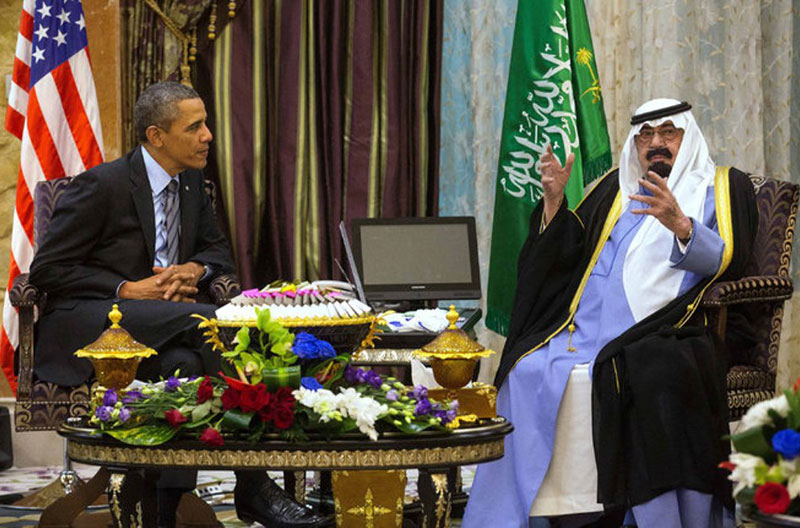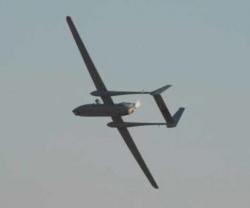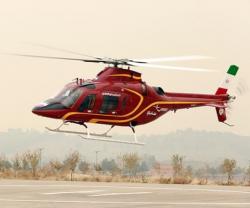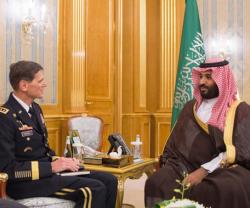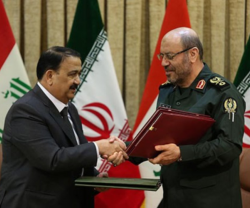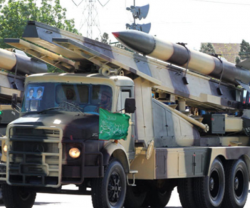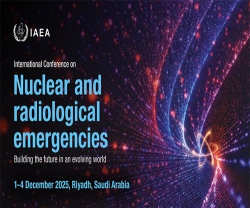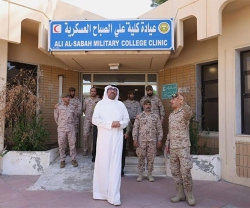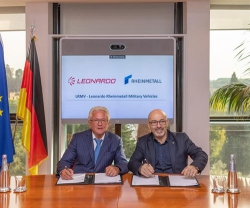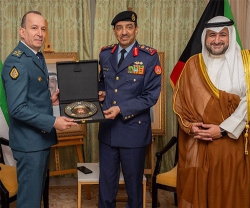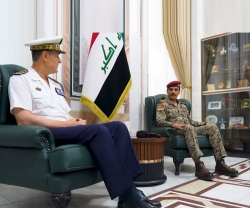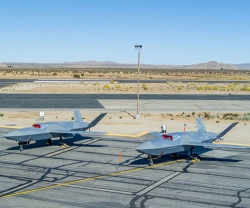US President Barack Obama and Saudi King Abdullah discussed “tactical differences” in their approach to some issues during a meeting in Riyadh on Friday, but agreed both sides remain strategically aligned, a senior US official said.
Flying by helicopter to the King's desert camp, Obama underscored the importance of Washington's relationship with the world's largest oil exporter in a two-hour meeting that focused on the Middle East.
Obama assured King Abdullah that the United States would not accept a bad nuclear deal with Iran, the official said, adding that Washington remained concerned about providing some shoulder-mounted anti-aircraft weapons to Syrian rebels.
In the run-up to his visit to the Kingdom, officials had said Obama would aim to persuade the monarch that Saudi concerns that Washington was slowly disengaging from the Middle East and no longer listening to its old ally were unfounded.
Last year senior Saudi officials warned of a “major shift” away from Washington after bitter disagreements about its response to the “Arab Spring” uprisings, and policy towards Iran and Syria, where Riyadh wants more American support for rebels.
The official said the two leaders had spoken frankly about a number of issues and “what might be or might have been tactical differences or differences in approaching some of these issues, but President Obama made very clear he believes our strategic interests remain very much aligned,” the official said.
The official said that Obama had assured the Saudi King that “we won't accept a bad deal" on Iran and that the king “listened very carefully” to what Obama said. He added that it was important for Obama to come and explain the US position face-to-face with the king.
The King and Obama, there with US Secretary of State John Kerry and National Security Adviser Susan Rice, made no public statements.
One area where Riyadh has long differed from Washington is in Obama's reluctance to supply Syrian rebels with surface-to-air missiles, sometimes known as MANPADS.
The Washington Post reported on Friday that the US was ready to increase covert aid to Syrian rebels under a new plan which included training efforts by the CIA, and was considering supplying MANPADS.
The White House has not closed the door to the possibility of such a move in the future, but an official said its position had not changed.
While Saudi Arabia, the world's largest oil exporter, supplies less petroleum to the US than in the past, safeguarding its energy output remains important to Washington, as does its cooperation in combating al Qaeda.
The Saudis also want more reassurance on American intentions regarding talks over Iran's nuclear program, which might eventually lead to a deal that ends sanctions on Tehran in exchange for concessions on its atomic facilities.
The Saudi King was accompanied in the talks by Crown Prince Salman, Prince Muqrin, who was named second-in-line to rule on Thursday, and Foreign Minister Prince Saud al-Faisal.
Powerful Interior Minister Prince Mohammed bin Nayef, who recently met top US officials in Washington to discuss Syria, was not present according to a list of participants supplied by US officials.
Source: Reuters

